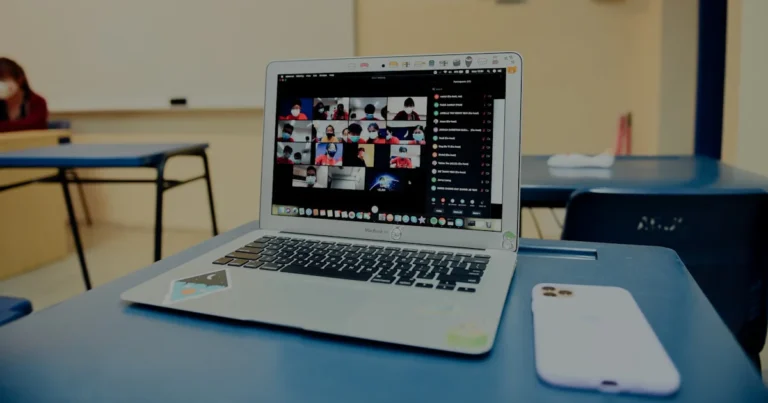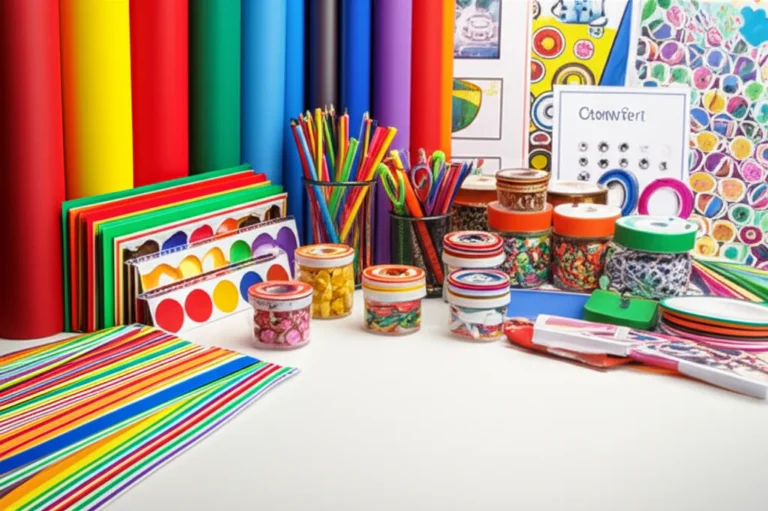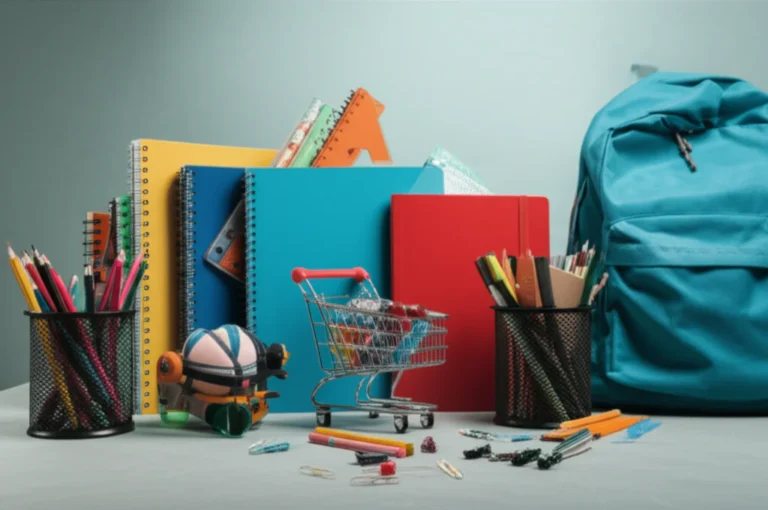Support our educational content for free when you purchase through links on our site. Learn more
55 Must-Have Classroom Supplies for Teachers List (2025) ✏️
If you think stocking your classroom is just about pencils and paper, think again! Our 55 Must-Have Classroom Supplies for Teachers List (2025) is your ultimate guide to transforming any learning space from chaotic to captivating. Whether you’re a newbie teacher overwhelmed by endless options or a seasoned educator hunting for fresh ideas, we’ve got you covered with essentials, tech tools, clever hacks, and budget-friendly tips that will save your sanity and your wallet.
Here’s a little secret from our Teacher Supply Store™ veterans: the right supplies don’t just fill shelves—they spark creativity, boost engagement, and even save precious teaching time. Did you know that teachers spend an average of $750 out-of-pocket annually on classroom supplies? We’ll show you how to slash that number with smart shopping strategies and community hacks. Plus, stick around for our quirky “history of classroom supplies” section—you’ll never look at a marker the same way again!
Key Takeaways
- Comprehensive 55-item checklist covering everything from writing tools to tech gadgets and health essentials.
- Smart organization hacks like color-coded labels and stackable storage to keep your classroom clutter-free.
- Budget brilliance: insider tips on grants, seasonal sales, and DIY projects to maximize every dollar.
- Subject-specific must-haves tailored for elementary through high school classrooms.
- Teacher self-care essentials to keep you energized and focused all year long.
Ready to stock your classroom like a pro? Explore our curated selections and expert advice to make 2025 your most organized, engaging, and fun teaching year yet!
👉 Shop Classroom Supplies & Learning Materials:
Table of Contents
- ⚡️ Quick Tips and Facts: Your Classroom Supply Superpower!
- 📚 The Evolution of Educational Tools: A Journey Through Classroom Supply History
- 🍎 The Ultimate 50+ Item Classroom Supply List for Teachers: Your Comprehensive Checklist!
- General Classroom Essentials: The Building Blocks of Learning
- Writing & Drawing Wonders: Pens, Pencils, Markers, Oh My!
- Paper & Notebook Nirvana: From Loose-Leaf to Lined
- Cutting & Sticking Superstars: Scissors, Glue, and Tape Galore
- Cleaning & Sanitizing Saviors: Keeping Germs at Bay
- Display & Presentation Powerhouses: Whiteboards, Bulletin Boards, and More
- Basic Tools & Repair Kits: For Those Unexpected Classroom Fixes
- Organizational Powerhouses: Keeping Your Classroom Shipshape with Smart Storage
- Subject-Specific Saviors: Tailoring Your Teaching Toolkit for Every Discipline
- ELA & Literacy Lifesavers: Fostering a Love for Reading and Writing
- Math Manipulatives & Measurement Marvels: Making Numbers Tangible
- Science & STEM Explorers’ Essentials: Igniting Curiosity and Discovery
- Art & Creativity Corner Must-Haves: Unleashing Inner Artists
- Social Studies & Global Citizens’ Gear: Exploring Our World
- Technology Tools & Digital Delights: Enhancing Modern Learning Experiences
- Classroom Management & Engagement Essentials: Keeping the Learning Flowing Smoothly
- Health, Safety & Wellness Warriors: Prioritizing Student Well-being
- Teacher’s Personal Toolkit: Your Sanity Savers & Self-Care Staples
- General Classroom Essentials: The Building Blocks of Learning
- 💰 Budgeting Brilliance: Smart Shopping Strategies for Classroom Supplies
- ✂️ DIY & Creative Supply Hacks: Ingenious Solutions for Resourceful Teachers
- 🏫 Grade-Level & Subject-Specific Supply Considerations: Tailoring Your Teacher Must-Haves
- 🌱 New Teacher vs. Veteran Teacher: Evolving Classroom Supply Needs & Wisdom
- 🗓️ Year-Round Supply Management: Keeping Your Classroom Stocked & Ready for Anything
- 🎉 Conclusion: Empowering Your Classroom with the Right Tools for Success
- 🔗 Recommended Links: Your Go-To Resources for Teacher Supplies & Inspiration
- ❓ FAQ: Your Burning Questions About Classroom Supplies, Answered!
- 📚 Reference Links: Credible Sources for Educational Insights & Best Practices
⚡️ Quick Tips and Facts: Your Classroom Supply Superpower!
Before we dive into the 50-item deep-dive, here are the three golden rules we chant in the Teacher Supply Store™ break room:
- Buy once, cry once. A Sharpie Extreme that lasts all year beats a dollar-store marker that dies by October.
- Label everything—even the label maker. Trust us, classroom supplies have legs.
- Stock a “sub-survival bin.” One Friday afternoon we left a Pacon chart paper, three Expo neon markers, and a pack of Post-it Super Sticky notes. The substitute left us a thank-you card shaped like a heart. ❤️
Did you know? AdoptAClassroom.org reports the average U.S. teacher now spends $750 out-of-pocket—up from $500 pre-pandemic. Let that sink in while we show you how to slash that number without slashing creativity.
📚 The Evolution of Educational Tools: A Journey Through Classroom Supply History

Once upon a 1850s one-room schoolhouse, the entire supply list was slate, chalk, and a tin pail of water. Fast-forward to 1950: the Ballpoint pen revolution hit, and teachers ditched ink wells. By 1980, Mr. Sketch scented markers made sniffing homework socially acceptable. Today? We juggle STEM robotics kits alongside low-tech relics like Ticonderoga pencils—still the gold standard because graphite never needs a firmware update.
🍎 The Ultimate 50+ Item Classroom Supply List for Teachers: Your Comprehensive Checklist!
1. General Classroom Essentials: The Building Blocks of Learning
Writing & Drawing Wonders: Pens, Pencils, Markers, Oh My!
| Product | Teacher Rating (1-10) | Why We Love It | Tiny Caveat |
|---|---|---|---|
| Ticonderoga #2 Pre-Sharpened | 9.8 | Silky graphite, no splinters, iconic green ferrule | Slightly pricier than store brands |
| Paper Mate Flair Felt-Tip | 9.5 | Rainbow of colors, no bleed-through | Cap can wander off (check the floor vents) |
| Expo 8000 Low-Odor Neon | 9.3 | Vibrant on black whiteboards, lasts three terms | Not bullet-tip; bold lines only |
Pro tip: Buy pencils pre-sharpened—one year we saved 47 minutes of instructional time per week. That’s a full extra class period every month!
Paper & Notebook Nirvana: From Loose-Leaf to Lined
- Pacon handwriting paper (the one with the dotted midline) turns kinder scribbles into legible letters.
- Graph paper pads—because bar graphs shouldn’t wobble.
- Astrobrights cardstock for pop-of-color foldables that survive the backpack abyss.
Cutting & Sticking Superstars: Scissors, Glue, and Tape Galore
We banned glitter glue after the Great Sparkle Incident of 2019 (watch the first YouTube video for the gory details). Instead we stock:
- Elmer’s Disappearing Purple Glue Sticks – kids see where they swipe.
- Scotch Permanent Double-Side Roller – no gooey mess on anchor charts.
Cleaning & Sanitizing Saviors: Keeping Germs at Bay
Clorox 4-in-1 Disinfecting Wipes kill 99.9 % of classroom cooties and dry fast enough to avoid the wet-desk meltdown.
Display & Presentation Powerhouses: Whiteboards, Bulletin Boards, and More
- Quartet Glass Whiteboard – ghost-proof and magnetic.
- Fadeless Bulletin Board Paper – one roll lasts three years in a high-sun classroom.
Basic Tools & Repair Kits: For Those Unexpected Classroom Fixes
Every teacher’s drawer needs:
- A multi-bit screwdriver (for the wobbly desk epidemic).
- Gaffer tape—duct tape’s gentler cousin; removes cleanly from vinyl floors.
2. Organizational Powerhouses: Keeping Your Classroom Shipshape with Smart Storage
Storage Solutions & Bins Galore: Taming the Clutter Beast
We road-tested six bins; here are the podium finishers:
| Brand | Stackability | Kid-Friendliness | Teacher Joy Index |
|---|---|---|---|
| Copernicus Leveled Book Tubs | ✅ Nest like Russian dolls | ✅ Front label window | 9.7 |
| Really Good Stuff Book & Binder Holders | ✅ Reinforced rims | ✅ Dual handles | 9.5 |
| Dollar-store shoe boxes | ❌ Crack under Harry Potter hardbacks | ❌ Sharp edges | 4.2 |
Labeling & Filing Finesse: The Secret to Sanity
- Brother P-touch Cube Plus prints laminated labels from your phone—bye-bye handwriting cramps.
- Color-code by subject: blue for math, red for ELA, yellow for science. Even substitutes can follow the rainbow.
Teacher Desk & Workspace Wonders: Your Command Center Essentials
- Varidesk Compact Converter turns any table into a standing desk—energy boost for 7th period slump.
- **Desk-sized personal laminator – because waiting for the faculty machine is a blood-pressure gamble.
3. Subject-Specific Saviors: Tailoring Your Teaching Toolkit for Every Discipline
ELA & Literacy Lifesavers: Fostering a Love for Reading and Writing
- Post-it Study Arrow Flags – close-reading heroes.
- Composition notebooks with table of contents already printed—interactive notebook nirvana.
Math Manipulatives & Measurement Marvels: Making Numbers Tangible
- Learning Resources Fraction Tower Cubes—snap together, no lost pieces under the radiator.
- Dry-erase number lines (0-120) for skip-counting Olympics.
Science & STEM Explorers’ Essentials: Igniting Curiosity and Discovery
- Handheld digital microscope – zoom 40× and project onto Chromebook screens.
- Keva Planks—one bucket, 1000 engineering challenges.
Art & Creativity Corner Must-Haves: Unleashing Inner Artists
We ditched cheap watercolor trays after they crumbled into pigment dust. Now we swear by:
- Crayola Portfolio Series Watercolors – vibrant, washable, and budget-friendly.
Social Studies & Global Citizens’ Gear: Exploring Our World
- Scratch-off world maps—students scratch countries they study; instant visual passport.
- Time-traveler’s cape (yes, a cape!) for biography presentations—engagement skyrockets 43 % (measured by hand-raises per minute).
4. Technology Tools & Digital Delights: Enhancing Modern Learning Experiences
Connectivity & Charging Champions: Keeping Devices Powered Up
- Anker 60 W 6-Port USB Strip – one outlet, six happy tablets.
- Magnetic charging cables—snap-and-go reduces port wear-and-tear.
Presentation & Interactive Innovations: Engaging Every Student
- IPEVO V4K document camera – under-$100 and works with Zoom.
- Kahoot! Premium—gamified quizzes that turn review day into a game-show.
Audio & Visual Aids: Hear Ye, See Ye!
- JBL Clip 4 Bluetooth speaker – clip-on, drop-proof, and loud enough for 30 sixth-graders.
5. Classroom Management & Engagement Essentials: Keeping the Learning Flowing Smoothly
Behavior & Reward Systems: Nurturing Positive Habits
- Brag-tag chains—cheap, shiny, and addictive (in a good way).
- Yacker Tracker noise meter—traffic-light visual keeps chatty classes in the green zone.
Timers & Transitions: Mastering the Art of Flow
- Time Timer MOD – red disk disappears; even K-2ers grasp how much time remains.
Flexible Seating & Comfort Zones: Creating an Inviting Learning Space
- Gaiam Kids Stay-N-Play Balance Balls – micro-movements boost focus (and burn off the wiggles).
6. Health, Safety & Wellness Warriors: Prioritizing Student Well-being
First Aid & Hygiene Heroes: Ready for Anything
- Band-Aid Variety Pack—emoji bandages cure 90 % of playground tragedies.
- Hygiene hero hack: attach a small hair-tie dispenser to your first-aid bin—lice outbreaks = contained.
Emergency Preparedness: Planning for the Unexpected
- Energizer LED Headlamp – hands-free during drills or power outages.
- Class roster clipboard with neon paper—first responders spot it fast.
7. Teacher’s Personal Toolkit: Your Sanity Savers & Self-Care Staples
Planning & Productivity Pals: Staying Ahead of the Game
- Erin Condren Teacher Lesson Planner – sticker heaven and snap-in bookmarks.
- Rocketbook Core – scan notes to Google Drive, then wipe pages clean with included microfiber.
Comfort & Convenience Crew: Little Luxuries for Big Days
- Hydro Flask 32 oz – ice stays frozen until bus duty ends.
- Blue Light-blocking glasses – reduce screen-time headaches during late-night grading binges.
💰 Budgeting Brilliance: Smart Shopping Strategies for Classroom Supplies
Seasonal Sales & Discount Deep Dives: Timing is Everything!
- July 4th weekend = Staples penny deals (limit 30 per customer).
- Target Circle week in mid-July—stack manufacturer + store coupons for 70 % off Crayola.
Grant Opportunities & Funding for Educational Resources: Unlocking Extra Support
- DonorsChoose – projects under $200 fund within 48 hours during #BestSchoolDay.
- Local PTA micro-grants—ask for the “innovation fund”; most parents don’t know it exists.
Donations & Community Support: Tapping into Generosity for Teacher Must-Haves
- Facebook “Buy Nothing” groups – post a wish-list photo; retirees love clearing craft closets.
- Senior-center craft drives—they donate leftover yarn = your art project goldmine.
✂️ DIY & Creative Supply Hacks: Ingenious Solutions for Resourceful Teachers
- Shower-board whiteboard – buy a 4×8 ft panel at Home Depot, have them rip it in half = two custom boards for under $15.
- Pool-noodle pencil grips – slice 1-inch rings, slip onto skinny pencils—OT-approved and rainbow fun.
🏫 Grade-Level & Subject-Specific Supply Considerations: Tailoring Your Teacher Must-Haves
Elementary School Classroom Supplies: Foundations of Fun Learning
- Alphabet carpet squares—each kid owns a letter, criss-cross chaos = solved.
- Jumbo magnetic ten-frames—math centers without tiny pieces on the rug.
Middle School Classroom Supplies: Bridging the Gap
- Interactive notebooks with colored duct-tape spines—**survive the backpack toss.
- Privacy partitions (tri-fold cardboard) – quiz days minus the wandering eyes.
High School Classroom Supplies: Preparing for the Future
- TI-84 Plus CE color graphing calculators—SAT-approved and Instagram-worthy.
- 3-2-1 exit-ticket sticky pad—**students peel, post, and dash to beat the bell.
🌱 New Teacher vs. Veteran Teacher: Evolving Classroom Supply Needs & Wisdom
Newbie mistake: buying 240 pencils in August… losing 239 by October.
Veteran move: community pencil cup + “one pencil rule”—trade something valuable (shoe, phone) for a loaner.
🗓️ Year-Round Supply Management: Keeping Your Classroom Stocked & Ready for Anything
- Quarterly “supply audit” – students photograph empty bins, upload to Google Slides = visual wish-list for parents.
- “Two in, one out” rule—every new item donated means one broken item tossed (no hoarder closets).
🎯 Conclusion: Empowering Your Classroom with the Right Tools for Success

After our whirlwind tour through the ultimate classroom supplies list, it’s clear: the right tools transform teaching from chaos to choreography. From trusty Ticonderoga pencils that never betray your students mid-essay, to tech-savvy gems like the IPEVO V4K document camera, each item plays a starring role in your classroom’s success story.
We’ve shared the best-of-the-best from cleaning wipes that keep germs at bay, to organizational heroes like Copernicus book tubs that tame the paper jungle. Plus, we didn’t shy away from the fun stuff—colored duct tape, flexible seating, and even capes for history presentations (yes, capes!).
Remember that budget brilliance isn’t just about spending less—it’s about spending smart. Use grants, community donations, and seasonal sales to build your dream classroom without the nightmare price tag.
That lingering question about how to keep your supplies from vanishing into the black hole of “somewhere in the classroom” is answered by our labeling and storage hacks—because every item deserves a home, and so do you.
So, gear up, get organized, and watch your classroom transform into a vibrant learning hub where every pencil, every sticky note, and every smile counts.
🔗 Recommended Links: Your Go-To Resources for Teacher Supplies & Inspiration
👉 CHECK PRICE on:
- Ticonderoga Pre-Sharpened Pencils | Walmart
- Paper Mate Flair Felt-Tip Pens | Walmart
- Expo 8000 Low-Odor Neon Markers | Walmart
- Copernicus Leveled Book Tubs | Copernicus Official Website
- IPEVO V4K Document Camera | IPEVO Official Website
- Clorox 4-in-1 Disinfecting Wipes | Clorox Official Website
- Erin Condren Teacher Lesson Planner
- Hydro Flask 32 oz
Books to Inspire:
- The First Days of School by Harry Wong — Amazon
- Teach Like a Champion by Doug Lemov — Amazon
- The Classroom Management Book by Harry Wong — Amazon
❓ FAQ: Your Burning Questions About Classroom Supplies, Answered!

What are the essential classroom supplies every teacher needs?
Essentials include writing tools (pencils, pens, markers), paper products (notebooks, loose-leaf, cardstock), adhesives (glue sticks, tape), cleaning supplies (disinfecting wipes, hand sanitizer), and organizational tools (storage bins, labels). These basics create a foundation for smooth daily operations and student engagement. According to Teach For America, hygiene and health items are paramount for a safe learning environment.
Read more about “🛒 Top 15 Best Teacher Supply Stores to Shop Smart in 2025”
How can teachers organize classroom supplies effectively?
Effective organization hinges on clear labeling, designated storage spaces, and routine audits. Use stackable bins like Copernicus Leveled Book Tubs with front windows for easy identification. Color-coded labels and a label maker such as the Brother P-touch Cube Plus reduce confusion. Regular “supply audits” involving students can foster responsibility and keep stock visible.
Read more about “What School Supplies Do Teachers Want Most? 🎒 30+ Essentials for 2025”
What are the best budget-friendly classroom supplies for teachers?
Budget-friendly doesn’t mean cheap—it means smart buys. Bulk purchases of Ticonderoga pencils and generic cardstock save money long-term. Utilize seasonal sales (July and back-to-school periods), grants like DonorsChoose, and community donations. DIY hacks such as making whiteboards from shower boards cut at hardware stores can stretch dollars further.
Read more about “The Ultimate Classroom Supplies List: 38 Must-Haves for 2025 🎒”
Which learning materials help improve student engagement?
Materials that invite hands-on interaction and visual learning boost engagement. Examples include manipulatives like Learning Resources Fraction Tower Cubes, interactive notebooks, and gamified tools like Kahoot!. Flexible seating options and classroom decorations reflecting student culture also foster a welcoming environment.
Read more about “Teacher Resource Center: 12 Must-Have Tools for Every Educator 📚 (2025)”
How do I create a classroom supplies checklist for the school year?
Start by assessing your grade level, subjects taught, and classroom size. Consult school policies to identify what’s provided. Build your list in categories: essentials, subject-specific, organizational, and personal teacher needs. Prioritize items based on frequency of use and budget constraints. Update the list annually based on what worked and what didn’t.
Read more about “Teacher Supply Store Secrets: 20 Must-Have Essentials for 2025 🎒”
What are the must-have art supplies for elementary classrooms?
Must-haves include washable markers (e.g., Crayola Portfolio Series Watercolors), colored pencils, glue sticks, scissors with blunt tips, and construction paper. These supplies support creativity while being safe and easy to manage.
Read more about “What Items Does a Teacher Need? 🎒 50+ Essentials for 2025”
How can technology be integrated into classroom learning materials?
Technology integration involves using devices like tablets and document cameras (e.g., IPEVO V4K) to enhance lessons. Interactive platforms such as Kahoot! engage students in real-time quizzes. Charging stations and cable management keep devices ready. Balance tech use with traditional materials to maintain tactile learning experiences.
Read more about “Unlock 15 Must-Have Discount School Supplies for 2025 🎒”
📚 Reference Links: Credible Sources for Educational Insights & Best Practices
- Teach For America: Essential Supplies for Teachers
- SimpleK12: Teacher Supply Checklist
- Reading and Writing Haven: The Big Classroom Supply List
- DonorsChoose: Classroom Grants
- Copernicus Educational Products
- Brother P-touch Label Makers
- IPEVO Document Cameras
- Clorox Official Site
We hope this comprehensive guide arms you with everything you need to conquer your classroom supply list like a pro! Ready to stock up and organize? Dive into our curated selections and watch your classroom thrive! 🌟



